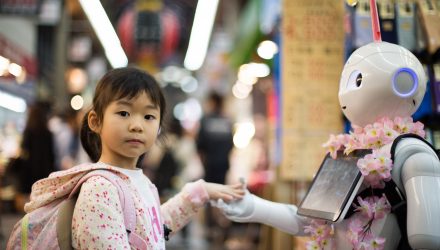While iRobot competes in consumer electronics and home appliance markets, its margins remain miles ahead of competition, reflecting the company’s strong competitive advantages in technology and its market leadership. We expect the company’s acquisition of distributors in Europe and Japan in the past year to drive expansion of its gross margins, which today are sitting at 50%. Japan, iRobot’s largest market in Asia, accounts for 15% of company revenue, while its European distributor accounts for 50% of its revenue in the region. Altogether, iRobot now directly controls ¾ of its total revenues. This should allow healthy gross margin expansion over the coming years.
iRobot remains an accelerating growth story. We expect the company to generate revenue and earnings growth rates in excess of 20%, as it continues to meet rapidly increasing demand for autonomous robot products for the smart home revolution.
Related: How Facebook Destroyed Digital Banking
A leader in the competitive landscape
As the RVC landscape has grown hotter, competition has intensified with well-established brands. Dyson and Ecovacs target the higher end of the market, and Xiaomi targets the lower end of the market. However, iRobot has successfully maintained a strong revenue market share position of 62% in the past several years.
We believe that iRobot’s future growth will come from continued market adoption of smart home appliances and penetration in the category from overall product awareness as the market for robotic vacuums remains meaningfully under-penetrated.
Today, robotic vacuums represent just 20% of the $7.5B high-end vacuum market worldwide. iRobot estimates that the category could more than triple before nearing saturation. In addition, less than 10% of US households own a robot vacuum cleaner; in China and Japan, that number is just 1-4%. This lack of penetration and the far-reaching market opportunity give us strong confidence that iRobot will remain a key enabler of the smart home revolution.
Related: How AI Can Transform the Health Care Sector
iRobot is delivering tomorrow’s smart home
In an interview with the MIT Technology Review in late 2017, Colin Angle introduced Roomba’s ability to provide a “unifying intelligence [that ties everything together]” and serve as the “building blocks of the smart home.” At last month’s event, he reiterated this potential: that Roomba can now build a map of your home, place all your connected devices within that map, and share that information with the other devices for the true connectivity that defines the smart home.
As iRobot amasses a treasure trove of data from its fast-growing fleet of connected Roombas around the world, we think the company is looking increasingly valuable in the eyes of large tech companies—Amazon, Google, Apple, Samsung, and more—that are focused on the rapidly growing smart home market. In this new era of AI and machine learning, data is the new gold, and the kind of data that iRobot is gathering today is precisely what will help it maintain a significant edge in the years ahead.
This article has been republished with permission from ROBO Global.
